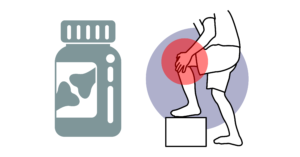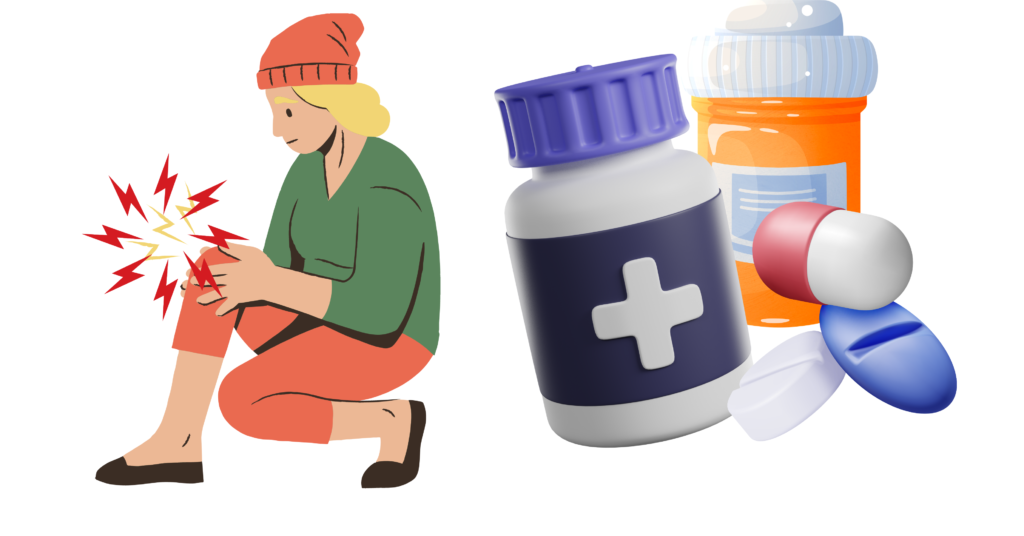Introduction
Welcome to a comprehensive journey through Supplements for Joint Pain Relief, a meticulously curated guide for individuals grappling with the challenges of joint discomfort. Joint pain, a condition affecting a myriad of lives globally, demands a thoughtful and effective management strategy. Amidst various therapeutic avenues, supplements have emerged as a beacon of natural and holistic relief. In this guide, meticulously crafted by experts, we will explore a spectrum of supplements recognized for their potential in ameliorating joint pain.
Understanding Joint Pain

Before embarking on our exploration of supplements, it is imperative to grasp the underpinnings of joint pain. Joints, the pivotal articulations between bones, are central to movement and functionality. Pain manifests when cartilage, the protective cushion at these junctions, deteriorates, leading to discomfort, inflammation, and stiffness. Predominant culprits include osteoarthritis, rheumatoid arthritis, and physical injuries.
The Role of Supplements for Joint Pain Relief
Supplements, while not a panacea, are instrumental adjuncts in the arsenal against joint pain. They are endowed with natural compounds that may diminish inflammation, foster joint lubrication, and fortify overall joint health. Let’s delve into the most esteemed supplements, each a potential ally in your quest for relief.
1. Glucosamine and Chondroitin
Naturally residing in cartilage, Glucosamine and Chondroitin are pivotal in cartilage repair and inflammation reduction. Their synergy is revered for potentially alleviating pain, particularly in osteoarthritis.
2. Turmeric and Curcumin
Turmeric, a culinary marvel, harbors Curcumin, a compound celebrated for its anti-inflammatory and antioxidant prowess. Its potential in mitigating joint stiffness and discomfort is supported by numerous studies.
3. Omega-3 Fatty Acids
Renowned for their anti-inflammatory attributes, Omega-3 Fatty Acids, predominantly found in fish oil, may curtail joint pain and enhance joint function, alongside bolstering cardiovascular health.
4. MSM (Methylsulfonylmethane)
MSM, a sulfur compound naturally occurring in plants and animals, is believed to reduce inflammation and bolster joint flexibility, thereby easing joint pain.
5. Boswellia Serrata
Also known as Indian frankincense, Boswellia Serrata is lauded for its anti-inflammatory properties, making it a promising supplement for those with osteoarthritis or rheumatoid arthritis.
6. Collagen
Integral to joint health, Collagen supplements aim to replenish this vital protein, potentially aiding in the maintenance and repair of cartilage.
7. Hyaluronic Acid
Endogenous to synovial fluid, Hyaluronic Acid supplements may enhance joint lubrication and mobility, particularly in osteoarthritis-afflicted individuals.
8. Vitamin D
Crucial for bone health, adequate Vitamin D levels are imperative in preventing joint pain and inflammation. Supplements or judicious sunlight exposure can ensure sufficient Vitamin D.
9. Devil’s Claw
Revered for its anti-inflammatory properties, Devil’s Claw may mitigate pain and enhance mobility, particularly in osteoarthritis and rheumatoid arthritis, but requires cautious use due to potential medication interactions.
10. Ginger
Esteemed in traditional medicine, Ginger’s anti-inflammatory properties may alleviate osteoarthritis and rheumatoid arthritis symptoms, making it a cherished supplement.
11. Green Tea Extract
Rich in catechins, Green Tea Extract’s anti-inflammatory effects may extend to joint pain relief, though it’s predominantly known for promoting heart health and weight management.
12. Cat’s Claw
Hailing from the Amazonian rainforest, Cat’s Claw may alleviate joint pain and inflammation, though further research is necessary to cement its efficacy.
13. Nettle Leaf
Traditionally utilized for medicinal purposes, Nettle Leaf may offer relief from osteoarthritis symptoms, though its efficacy requires further validation.
14. SAMe (S-Adenosylmethionine)
Involved in neurotransmitter synthesis, SAMe may rival NSAIDs in managing osteoarthritis symptoms but demands medical consultation due to potential interactions.
15. Ashwagandha
An adaptogenic herb, Ashwagandha’s potential in reducing stress and inflammation may indirectly benefit joint health, though it’s primarily renowned for stress reduction.
16. Bromelain
Sourced from pineapple, Bromelain’s anti-inflammatory properties may aid in post-injury or post-surgical joint pain relief, though it warrants careful consideration due to potential interactions.
17. White Willow Bark
A natural aspirin analog, White Willow Bark may offer joint pain relief, especially in osteoarthritis, but requires medical consultation due to potential stomach irritation.
18. Pycnogenol
Derived from French maritime pine bark, Pycnogenol’s antioxidant properties may benefit joint health, particularly in osteoarthritis, by reducing inflammation and oxidative stress.
19. Calcium
A linchpin in bone health, adequate Calcium intake is essential for joint stability and overall skeletal strength, necessitating a balanced diet or supplements if required.
20. Magnesium
Magnesium’s role in muscle and nerve function extends to joint health, regulating calcium levels and ensuring proper muscle contraction and relaxation.
21. Vitamin C
Vitamin C’s pivotal role in collagen production, a protein essential for cartilage health, underscores its importance in maintaining robust and healthy joints.
22. Vitamin E
Vitamin E’s antioxidant properties may indirectly contribute to joint health by protecting joint tissues from oxidative damage.
23. Manganese
Manganese’s involvement in cartilage formation and maintenance makes it a crucial mineral for joint health, though it’s typically obtained adequately through diet.
24. Glutamine
As a component of synovial fluid, Glutamine is essential for joint lubrication, though it’s naturally obtained through a protein-rich diet.
Conclusion

In the pursuit of relief from joint pain, supplements should be approached with discernment and in consultation with healthcare professionals. While they offer a spectrum of potential benefits, individual responses and potential interactions necessitate a well-informed approach. Supplements should complement, not supplant, comprehensive joint pain management strategies, including medical care, exercise, and a balanced diet. By adopting a judicious and holistic approach, you may find meaningful relief and an enhanced quality of life amidst the challenges of joint pain.
